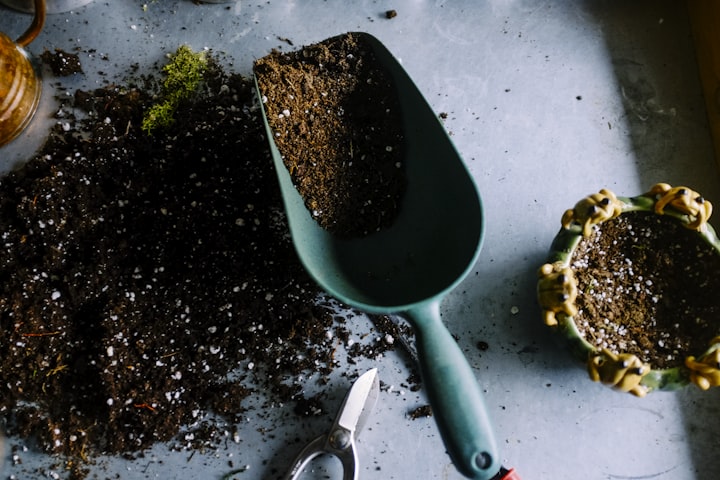Gardening in the United Kingdom
Maximizing your garden yield

When it comes to gardening in the UK, there are several best practices to consider. Here are some tips to help you achieve success in your gardening endeavors:
Understand your climate: The UK has a temperate maritime climate, which means it's generally mild and wet. Familiarize yourself with your specific region's climate conditions, including average temperatures, rainfall patterns, and frost dates. This information will guide your plant selection and care routines.
Plan your garden layout: Before you start planting, carefully plan your garden layout. Consider factors like sunlight exposure, soil type, and drainage. Map out areas for different types of plants, taking into account their growth habits, space requirements, and compatibility.
Improve your soil: Soil health is crucial for successful gardening. Conduct a soil test to determine its pH level and nutrient content. Based on the results, amend your soil with organic matter like compost, well-rotted manure, or peat moss to improve its structure, fertility, and moisture retention.
Choose suitable plants: Select plants that are well-suited to your specific region and growing conditions. Its better you go for native species or cultivars that are known to thrive in the UK climate. Consider factors like sunlight requirements, water needs, and hardiness zones when making your plant choices.
Provide adequate water: While the UK generally receives ample rainfall, it's important to ensure your plants receive adequate water, especially during dry spells. Water deeply and infrequently to encourage deep root growth, and try to water early in the morning or late in the evening to reduce evaporation.
Mulch your beds: Apply a layer of organic mulch, such as wood chips or straw, around your plants and in your garden beds. Mulching helps conserve soil moisture, suppress weeds, regulate soil temperature, and improve overall soil health.
Practice proper pruning: Regular pruning promotes plant health, improves shape, and encourages better flowering or fruiting. Learn proper pruning techniques for different plant types, and prune at the appropriate times of the year. Remove dead or diseased branches promptly to prevent the spread of pests and diseases.
Monitor pests and diseases: Keep an eye out for common pests and diseases that affect plants in the UK. Regularly inspect your plants for signs of infestation or disease, such as chewed leaves, discolored foliage, or wilting. Employ integrated pest management strategies, which may include natural remedies or targeted pesticide use, if necessary.
Practice sustainable gardening: Embrace sustainable gardening practices to minimize environmental impact. Compost your kitchen scraps and garden waste, conserve water through techniques like rainwater harvesting, and encourage beneficial wildlife, such as bees and butterflies, by planting native flowers and providing habitats.
Learn and experiment: Gardening is a continuous learning process. Stay curious, seek knowledge, and be open to experimentation. Attend gardening workshops, join local gardening groups, and connect with experienced gardeners to exchange ideas and gain insights.
Remember, gardening is a creative and fulfilling activity, so enjoy the process and have fun while nurturing your plants and green spaces.
Gardening offers numerous benefits that extend beyond just the beauty and enjoyment of a well-tended garden. Here are some key benefits of gardening:
Physical exercise: Gardening is a form of physical activity that provides exercise for the body. Tasks like digging, planting, weeding, and pruning involve movements that can improve strength, flexibility, and cardiovascular health. Spending time outdoors also exposes you to fresh air and sunlight, which can boost vitamin D levels.
Stress reduction: Gardening has been shown to have a positive impact on mental health and well-being. The act of gardening, whether it's planting seeds, tending to plants, or simply being in nature, can help reduce stress, anxiety, and depression. It provides a sense of purpose, accomplishment, and connection to the natural world, which can be calming and therapeutic.
Connection with nature: Gardening allows you to connect with nature in a meaningful way. It provides an opportunity to observe and appreciate the beauty of plants, flowers, and wildlife. Being surrounded by greenery and natural elements can promote a sense of tranquility and help foster a deeper appreciation for the environment.
Food production: Growing your own fruits, vegetables, and herbs can provide you with a fresh and healthy food source. It allows you to have control over what you eat, promotes sustainable and organic practices, and reduces reliance on store-bought produce. Harvesting and enjoying homegrown food can be incredibly rewarding and satisfying.
Environmental benefits: Gardening contributes to a healthier environment. Plants help filter the air by absorbing carbon dioxide and releasing oxygen. They also provide habitat and food for beneficial insects, birds, and other wildlife, promoting biodiversity. Additionally, well-maintained gardens can help manage water runoff, reduce erosion, and improve soil quality.
Creativity and self-expression: Gardening is a creative outlet that allows you to express your personal style and preferences. You can experiment with different plant combinations, colors, textures, and garden designs. Creating and maintaining a garden gives you the opportunity to showcase your unique creativity and bring beauty to your outdoor space.
Social connections: Gardening can be a social activity that brings people together. It provides opportunities to connect with fellow gardeners, join community gardens, or participate in gardening clubs and events. Sharing knowledge, experiences, and even surplus produce can foster a sense of community and create meaningful relationships.
Cognitive benefits: Gardening engages the mind and can have cognitive benefits. It requires planning, problem-solving, and decision-making, which can help improve cognitive function, memory, and concentration. Learning about different plants, their needs, and gardening techniques can also stimulate curiosity and lifelong learning.
These are just a few of the many benefits that gardening offers. Whether you have a small balcony garden or a large backyard, cultivating plants and engaging in gardening activities can enhance your physical, mental, and emotional well-being.





Comments
There are no comments for this story
Be the first to respond and start the conversation.